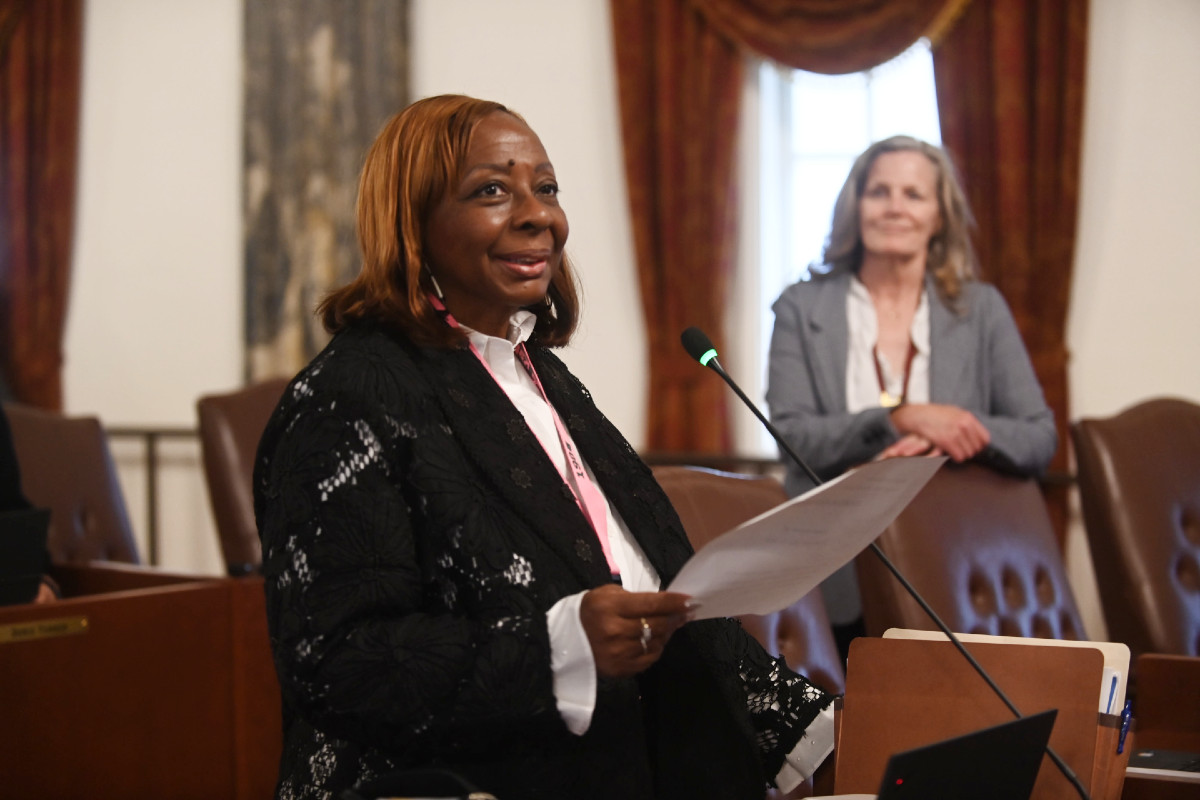- Details
- Category: Press Releases
 CHICAGO — A longtime leader in advancing affordable health care, State Senator Mattie Hunter applauded the Biden Administration’s announcement Thursday that a deal has been reached between Medicare and pharmaceutical companies to lower the prices for 10 costly and commonly prescribed medications.
CHICAGO — A longtime leader in advancing affordable health care, State Senator Mattie Hunter applauded the Biden Administration’s announcement Thursday that a deal has been reached between Medicare and pharmaceutical companies to lower the prices for 10 costly and commonly prescribed medications.
“We’ve watched the cost of living skyrocket, and people simply cannot afford the essentials anymore,” said Hunter (D-Chicago). “This legislative session, I passed a law limiting the cost of asthma inhalers — building on years of work in Illinois to make prescription medication accessible and affordable to those who need it. I am thrilled to see our federal government act with similar priorities.”
The deal will lower the price of drugs used by millions of older adults to help manage diabetes, blood cancers and arthritis, as well as prevent heart failure, strokes and blood clots. Medicare beneficiaries are expected to save $6 billion on the new prices, which will take effect in 2026.
- Details
- Category: Press Releases
 SPRINGFIELD — A dedicated advocate for victims and their families, State Senator Mattie Hunter passed a law to expand the Task Force for Missing and Murdered Chicago Women, adding two seats for Chicago police officers.
SPRINGFIELD — A dedicated advocate for victims and their families, State Senator Mattie Hunter passed a law to expand the Task Force for Missing and Murdered Chicago Women, adding two seats for Chicago police officers.
“Through the work of the task force and dedicated individuals who are shining a light on this crisis, we are beginning to see the true scale of this issue and areas for improvement related to managing cases and data,” said Hunter (D-Chicago). “It’s vital we bring in representatives from the Chicago Police Department to speak to current practices and how we can best move forward.”
Despite making up only 2% of Chicago’s population, Black women and girls account for about 30% of the city’s missing persons cases — an alarming disparity that remains the focus of the Task Force for Missing and Murdered Chicago Women. The task force, established through legislation Hunter passed in 2022, is studying methods for tracking and collecting data on violence against Chicago women and working to develop strategies to reduce violence and prevent future tragedies. The task force meets monthly and is due to submit its first report to the General Assembly by Dec. 31.
- Details
- Category: Press Releases
 SPRINGFIELD — Individuals with asthma will soon see significant savings on their prescription inhalers thanks to a new law from State Senator Mattie Hunter.
SPRINGFIELD — Individuals with asthma will soon see significant savings on their prescription inhalers thanks to a new law from State Senator Mattie Hunter.
“As someone with asthma, I know the importance of having access to an inhaler — and the cost that comes with it,” said Hunter (D-Chicago). “People shouldn’t be faced with financial hardship when it comes to essential medication.”
Under the new law, health insurance providers cannot deny or limit coverage for prescription inhalers, and insured individuals will pay no more than $25 for a 30-day supply of their inhaler.
- Details
- Category: Press Releases
 CHICAGO — With the help of federal Low-Income Housing Tax Credits, a building within the 3rd Senate District will be turned into additional affordable housing units, State Senator Mattie Hunter announced.
CHICAGO — With the help of federal Low-Income Housing Tax Credits, a building within the 3rd Senate District will be turned into additional affordable housing units, State Senator Mattie Hunter announced.
“The dilapidated and crumbling building at the southeast corner of Western and 63rd will finally be demolished and new housing will take its place,” said Hunter (D-Chicago). “I’m a strong supporter of the creation of additional affordable housing opportunities, not just in my district but across Illinois.”
A total of $23.8 million in federal Low-Income Housing Tax Credits will finance the creation and preservation of 16 affordable housing developments in 10 counties across Illinois. Once completed, the developments will offer 792 affordable units for low- to moderate-income families, seniors and people with disabilities. Southwest Organizing Project in Chicago is among awardees for the development at 6301 S. Western Ave.
More Articles …
Page 8 of 125

